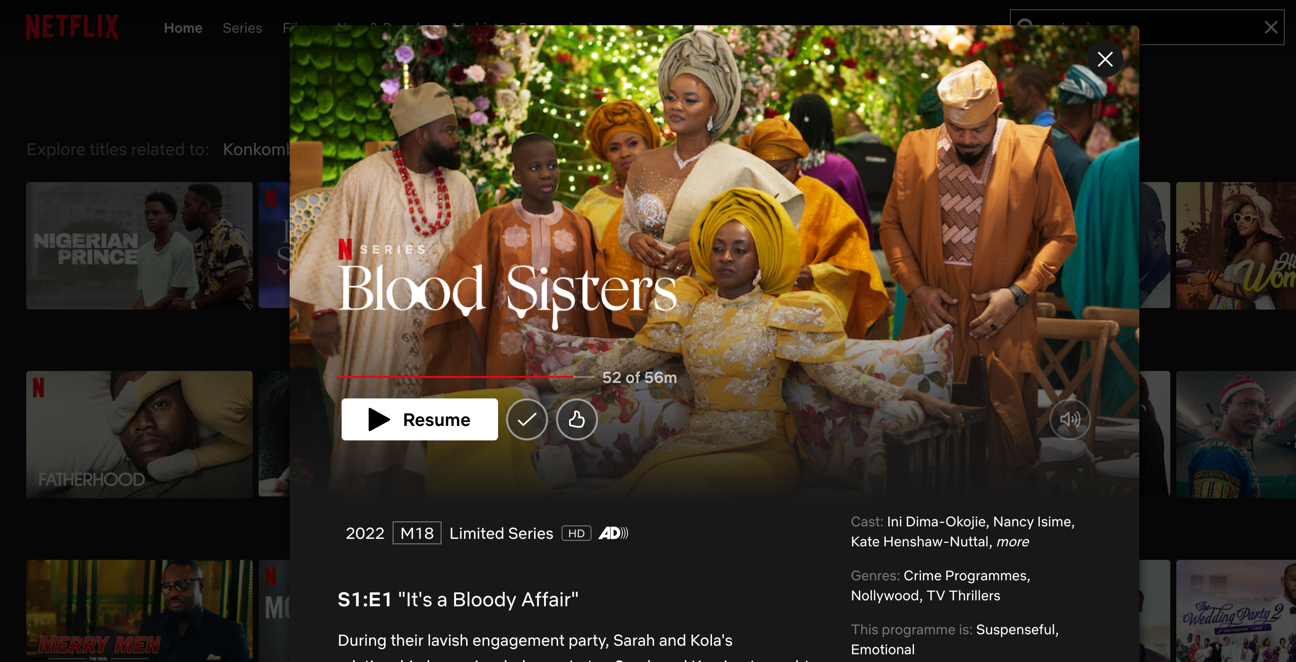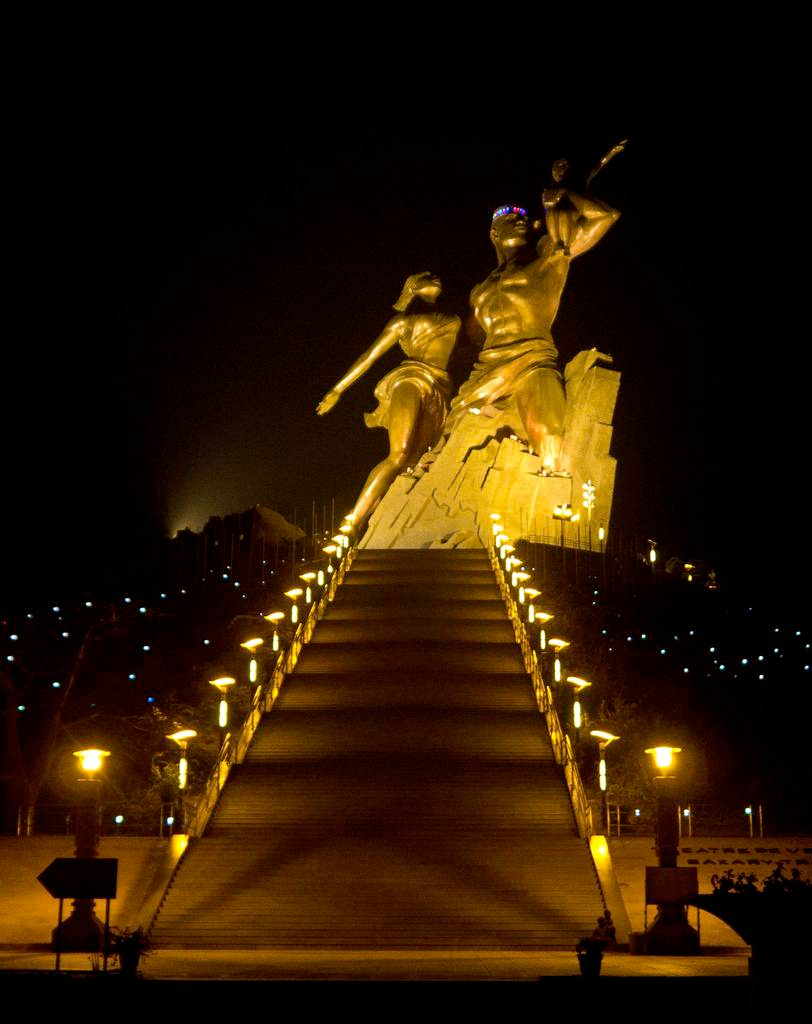Did you know that you can navigate the posts by swiping left and right?
Afronaissance: Towards an African Cultural Renaissance
25 Oct 2022
. category:
Africa
.
Comments
#Africa
#Renaissance
#Afronaissance
#culture
#social
It is Friday night and you walk into a bar in one of the bustling nightlife districts of Singapore. You hope to sip on a glass or two and head home to sleep for it has been a tiring week and you just wanted to tick the TGIF box by getting in some booze before retiring for the night. You love the ambience of the bar and it is peopled by a good mix of young Asians and Caucasians happily chatting as they clink their glasses with their friends. If you look hard enough, you could spot the dude across two tables from you who looks black; but he could also be Indian and seems to be enjoying his time with his partner so you can’t be bothered to go introduce yourself. And you can’t bother them either. Just after the second glass, you begin to pay attention to the music. It is good American Hip-Hop, perhaps even Jay-Z or something of the like. But just as you were considering calling it a night, a new song comes up, and your face glows up with a smile:
E don cast, last last, na everybody go chop breakfast, shayooo! ♪
It is a Burna Boy song so you say to yourself - maybe a third glass won’t hurt.
The above scenario is one that is very plausible today though it would have been close to impossible a decade ago. Afrobeats, a collection of popular music from Africa and the African Diaspora, is gradually making waves across the entire planet and garnering fans from all corners of the globe, even in Singapore. While Afrobeats songs mostly come from West Africa, it has a mix of rhythms that are inspired or directly taken from older rhythms from different corners of the continent. The South African Amapiano beats for example, form the basis of many new Nigerian songs.
While music is at the forefront of this cultural revolution, it is not the sole medium. The movie industry, food and even fashion are also contributing their fair share. In the past few years, the Nigerian movie industry dubbed Nollywood produced roughly 2,500 films annually, making it the second biggest movie industry in the world in terms of production capacity, just behind India’s Bollywood. Most of these movies do not have a big viewership outside the continent but are gaining popularity within the continent and among the diaspora. Popular streaming platforms like Netflix are also beginning to pay more attention to them and a good number of South African, Nigerian and Kenyan movies among others can be found on these platforms. The continent is also beginning to export fashion like dashiki and African prints which are donned on their own or mixed with other clothing styles to derive new modern fashion styles.
But why is this important? After all, Africa still has a myriad of other issues like poverty, underdevelopment, poor infrastructure and all the usual negative attributes associated with the continent. If you went to the streets of an average Asian/European city and asked random non-Africans what comes to their mind when the word “Africa” is mentioned, you will get very similar answers. A few decades back, you would hardly get any response that didn’t include the usual ‘poverty’, ‘lack of clean water’, ‘poor infrastructure’ and the like. But this narrative is now slightly changing. In the mix of all that, you can now get ‘Afrobeats’, ‘good athletes’ and a few others every once in a while. But of course, it does not just end with changing people’s perception of Africa. The reality is that centuries of slavery, colonization and underdevelopment has weighed heavily on the African mind to the extent that he began consciously or unconsciously to associate himself with these negative qualities as well. With a shift in culture that portrays the positive side of the civilization, the downtrodden African mind is equality uplifted and his dignity restored. As Frantz Fannon beautifully put it in The Wretched of the Earth while commenting on a speech by president Sékou Touré of Guinea:
In the realm of thought, man may claim to be the brain of the world; but in real life where every action affects spiritual and physical existence, the world is always the brain of mankind; for it is at this level that you will find the sum total of the powers and units of thought, and the dynamic forces of development and improvement; and it is there that energies are merged and the sum of man's intellectual values is finally added together
The African consciousness and spirit which has been beaten down by the events of the past centuries are being remolded and uplifted by a cultural renaissance.
The term Renaissance refers to a period of great social change in the European society which marked the transition from the middle ages to modern times. The movement was more cultural than economic and is believed to have started in the Italian city of Florence, marked by such great artists and thinkers as Leonardo da Vinci, Michaelangelo, Copernicus, Galileo Galilei etc. It was a period of revival and reimagining of Art, Music, Science and Philosophy which had all been left in ruins for close to a millennium of The Dark Ages that followed the fall of the Roman Empire. One could say it was a period of reflections at the past and looking inwards.
Afronaissance takes a similar meaning - a period of African Renaissance. This term came to my mind while I was pondering at the similarities between the ongoing cultural shift in Africa and the European Renaissance. While the changes we are currently witnessing are very far from the magnitude and reach of the renaissance, it is at its very early stages and may take several more decades or even centuries as in the case of the former, to properly crystallize.
Contributing factors:
-
Social media: the advent of social media has created a common ground for cultural exchange at a rate never experienced before. Many Afrobeats songs were popularized by means of trendy dance routines created on TikTok. Social media has also provided a platform for content creators including Africans to easily reach their target audience and also for people to simply share cultural ideas virtually.
-
Increasing interest in Africa by The Diaspora: Just as in the case of the renaissance, more of the African Diaspora are now looking backwards and inwards into the continent. There is more interest in pre-colonial African history, travelling within the continent etc. Some are even relocating back to the continent and publishing travel blogs. I made an observation sometime ago that when people look outwards, it often inspires them to look back inwards as is the case of many African vloggers now more interested in their countries, often after having traveled abroad or exposed themselves to foreign cultures through social media. There is a significant increase in the amount of collaborations between continental artists and the Diaspora. This doubles as both cause and effect of Afronaissance and will likely continue to reinforce the movement
-
Modernization and improvement in the quality of African art forms especially music
-
The modern liberal movement: The liberal movement has promoted interest in non-Western cultures as the “can anything good ever come from Nazareth” concept is being increasingly challenged. Though some friends I had a discussion of the topic with disagreed with this, I believe it is a factor worth considering. Without recourse to a debate on the socio-political spectrum, it is merely a fact that many minority movements in North America and Europe have gained support mostly from the liberal left compared to others among the local populace.
The effect of these factors which currently highlight the Afronaissance movement is the increase in popularity of African music and art forms, increased appreciation of the African Identity as more people are proud to showcase their countries of origin even in the diaspora and of course more interest in the continent by the continental and diaspora folks alike, inform of investments, tourism, collaborations, politics and activism etc.
What is the way forward? We should welcome and even encourage this cultural movement. While the US has been the world’s largest economy for more than a century, it has arguably influenced the world more through the exportation of its culture. American movies, music, fashion, food and general lifestyle are popular in almost every corner of the planet. And this is what defines the American identity. The Japanese and more recently the Koreans are also creating their own cultural niches which are exported to the rest of the world through anime and K-pop so that it has formed part of their identity as well. It is quite simple; if we do not export the rich and positive parts of our culture, it will be appropriated by others for their own good. With Afronaissance, in time, Africans will rebuild their identity from the negative connotations by which it is now defined to one that highlights our rich culture and diversity.



